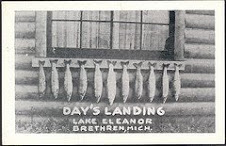Well, after looking at the video interview of Stephen Abram, and reading the articles, I think I have narrowed down my reasons to two for why I'm not joyfully embracing the Library2.0/Web 2.0 movement wholeheartedly.
The first reason would be my lack of familiarity regarding the technologies themselves. This is issue is easily resolved, and I'm hopeful that my lack of familiarity will have disappeared by the time I finish the 23 Things on a Stick program. The lack of experience, however, prevents me from visualizing just how useful the technologies would be in my particular, special library setting with unusual collections. However, upon doing the readings and seeing what applications are already being done, I can somehwat better understand the buzz around 2.0. What I'm hoping for, once having completed the 23 Things..., is that I will be better able to see how such technologies apply to my particular setting. While I have also enjoyed such opposing viewpoints as the Annoyed Librarian's twopointopia discussions, I do agree with John Blyberg that all of this is "just not a passing fancy".
The second issue is a much larger one for me, and I actually had a brief discussion about it with Michael Stephens at the great Library 2.0 presentation that he did in the Twin Cities back in September 2007. Chip Nilges discusses my issue in his essay on "To More Powerful Ways to Cooperate" and so does Blyberg. So, what is my issue? I have authority issues, in that Library 2.0 is telling me to "give up my authority" and to "trust the user" (Blyberg) and that "users add value"(Nilges). I actually don't have an issue with this just in regards to library work--it is my larger issue overall with the Internet. Suddenly, everyone is an expert and everyone gets to put in their two cents worth on a topic--whether it is actually factual or correct or not. For example, in the field of genealogy, there are some research methods that are proven standards for locating factual, accurate information and these methods apply no matter what type of research one is doing--via the Internet or in a particular institution's collections. My personal experience is that people new to family research who have started out by using the Internet end up developing some inaccurate research methods based on what they have come across from all of the interactive sites on the web. Obviously, that is the role that librarians have always played in helping users beome discerning researchers--but in my experience of 24 years as a librarian this issue has become increasingly more common. I am fairly certain that I don't have librarian delusions of grandeur--I know I'm no expert. But, as I was telling Michael Stephens at the conference, I do have training that is supposed to help me help others in a particular subject area, and I am constantly having to gently disabuse people of some incorrect concepts simply because information was made available that was in error. Sticking with the field of genealogy as the example, obviously misinformation has always been a problem--but the whole concept of allowing users regardless of their knowledge base create content in an easily accessible arena such as the Internet seems to me personally to exacerbated the problem. I understand that some say this is what is going to keep librarians employed, but it still bothers me. And obviously, I realize the huge value that the Internet has in regards to genealogy research--but it is just my issue with 2.0. And I realize that I am sinplifying the problem--as many reputable Internet sources also provide misinformation. At any rate--I logically understand that I am to trust the user, but emotionally I'm not there yet. Hopefully, going through the 23 Things and learning more will assist me in resolving this issue.
In regards to getting the 23 Things done, and listening to Stephen Abram saying you can always find time for something if you really want to--I think that is a true statement. It just seems to me that I find time for the things that I really love to do, but it is not that easy to find time for things that I know I should do, or would be good for me to do. Right now I look at the 23 Things as something that will be good for me to do--so finding time hasn't been simple.So far, I done the first step at home and the second at work. I find it easier to do this at home--I really need to concentrate on some of these things and there are just too many disruptions at work.
Tuesday, February 5, 2008
Subscribe to:
Posts (Atom)








